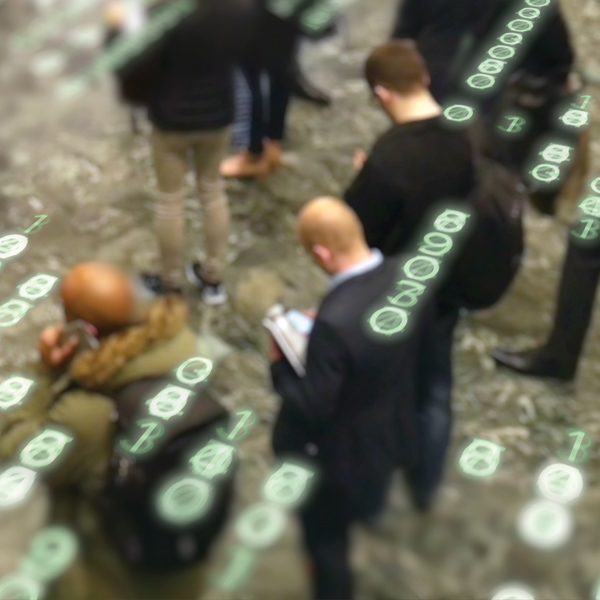
President Clinton Announces Commitment to Create New Pathways to College and Career Success
President Bill Clinton today announced a Clinton Global Initiative Commitment to Action to massively expand access to a new method of academic and technical skills assessment known as Open Badges – online representations of earned knowledge and skills – to improve the futures of two million students and U.S. workers.
Speaking at the Clinton Global Initiative America (CGI America) meeting, an annual event of the Clinton Global Initiative that seeks innovative solutions for economic recovery, Clinton said three partners – the MacArthur Foundation, Mozilla, and HASTAC – have created the commitment to Open Badges. Outreach and technical assistance will be provided to help employers and universities across the country incorporate Open Badges in hiring, promotions, admissions, and credit over the next three years.
Open Badges has the potential for in-depth, verifiable credentialing of 21st Century skills no matter where they are learned – in school, in the community, on the job, or online. That creates new pathways to success for students and workers while helping employers identify job candidates that have the skills that are most needed in today’s rapidly changing workplace.
“Veterans transitioning to civilian life who have high-demand skills but no certifications, Internet ‘ninjas’ who are technically adept but self-taught, and child care workers who have years of experience but no formal degree can all benefit from Open Badges, which provides an alternative and more in-depth method to demonstrate new knowledge and skills,” said Connie Yowell, Director of Education at the MacArthur Foundation. “Meanwhile, Open Badges gives employers a new way to assess critical but hard-to-measure skills such as creativity, communication, teamwork, and adaptability.”
Some universities, massively open online courses (MOOCs), high-tech employers, and K-12 programs already use badges to certify skill acquisition. The Open Badges partners are committed to expanding the use of badges nationwide over the next three years so that one million K-12 and college students and one million workers will be able to use badges to advance their academic progress or further their career goals by being able to demonstrate acquired skills and learning.
The partners moved a step closer to that goal on Thursday with a commitment by two influential institutions to join the Open Badges effort. The Information Technology Industry Council, which is the leading policy and advocacy organization for many of the world’s best-known innovation companies, and DePaul University, the largest Catholic university in the nation and the largest private educational institution in Chicago, each pledged Thursday to incorporate badges in their credentialing, hiring, or admissions processes.
“Open Badges is a great opportunity for our nation: American workers and businesses alike. Whether self-taught, acquired through work experience, or learned from science, technology, engineering, and math classroom programs, Open Badges is a way to demonstrate tangible skills that have direct relevance to careers today and in the years to come,” said Dean Garfield, president and CEO of the Information Technology Industry Council. “ITI is committed to working with our member companies to develop internships, mentorships, and training opportunities earned by achieving badges.”
Nichole Pinkard, associate professor in DePaul’s College of Computing and Digital Media, said DePaul will consider Open Badges that document higher-level learning as part of the application process.
“Badges give you a better idea of who the applicant is. They give you a stronger sense of quality and a stronger sense of context of what that person has done in the real world,” Pinkard said. “While digital badges won’t replace anything we currently require, as they become more prominent and more recognized, we would expect more students to include them in their applications to DePaul. The applicant’s academic record will still be the most important consideration.”
Chicago Mayor Rahm Emanuel also is supporting the expanded use of badges. This summer, Chicago schoolchildren will be able to earn badges as they gain new skills and learn new things during the Chicago Summer of Learning, designed to help students maintain academic progress by participating in a number of summer programs across the city.
Mozilla, a nonprofit best known for Firefox, is supporting the CGI America commitment through its Open Badges Initiative. Mozilla's Open Badges makes it easy for any organization to create, issue, and verify badges. Badge earners of all ages can then benefit by sharing their badges for increased opportunities and advancement. Mozilla will be offering Open Badges support and services to organizations making commitments at CGI.
"Just as it has with the rest of the economy, the internet is opening radical new approaches in learning. Badges are a part of this. They let people learn and show off their skills anywhere," said Mark Surman, Executive Director of Mozilla.
The effort also is being supported by HASTAC, an online consortium that has promoted the creation of design standards for digital badges. HASTAC also administers the annual $2 million MacArthur Foundation Digital Media and Learning Competition, which is supported through a grant to the University of California at Irvine.
“In the changing ecology of technology and learning at all levels, open badging offers an innovative set of ways to recognize, assess, and accredit learning, as well as to provide employers ways of recognizing less visible skills and capabilities of potential employees,” said David Theo Goldberg, Executive Director of the Digital Media and Learning Research Hub at the University of California at Irvine and founding co-director of HASTAC with Cathy N. Davidson. “We look forward to working with our partners, the MacArthur Foundation and Mozilla, and with the Clinton Global Initiative in realizing the significant potential of open badging.”
The three lead partners are urging universities, school districts, and employers across the country to join the Open Badges commitment.
About CGI America
The Clinton Global Initiative (CGI), an initiative of the Clinton Foundation, convenes global leaders to create and implement innovative solutions to the world’s most pressing challenges. Established in June 2011 by President Bill Clinton, the Clinton Global Initiative America (CGI America) addresses economic recovery in the United States. CGI America brings together leaders in business, government, and civil society to generate and implement commitments to create jobs, stimulate economic growth, foster innovation, and support workforce development in the United States. Since its first meeting, CGI America participants have made more than 200 commitments valued at $13.4 billion when fully funded and implemented.
About HASTAC
HASTAC (Humanities, Arts, Science, and Technology Alliance and Collaboratory) is an international network of educators and digital visionaries committed to the creative development and critical understanding of new technologies in life, learning, and society. HASTAC is committed to innovative design, participatory learning, and critical thinking.
About Mozilla
Mozilla has been a pioneer and advocate for the Web for more than a decade. We create and promote open standards that enable innovation and advance the Web as a platform for all. Today, hundreds of millions of people worldwide use Mozilla Firefox to discover, experience and connect to the Web on computers, tablets and mobile phones. Mozilla's Open Badges Infrastructure is a technical standard that makes it possible for learners everywhere to display their skills, interests and credentials.




